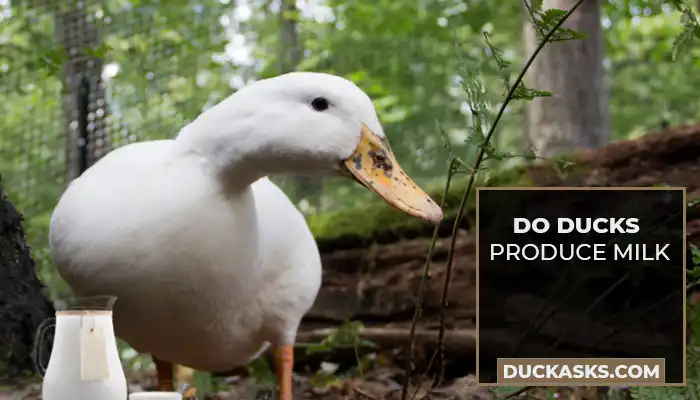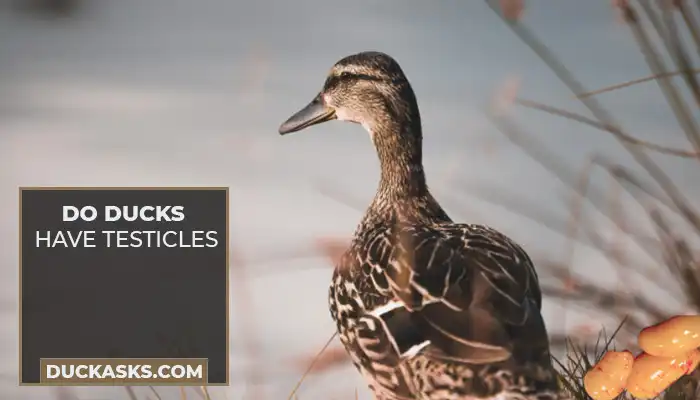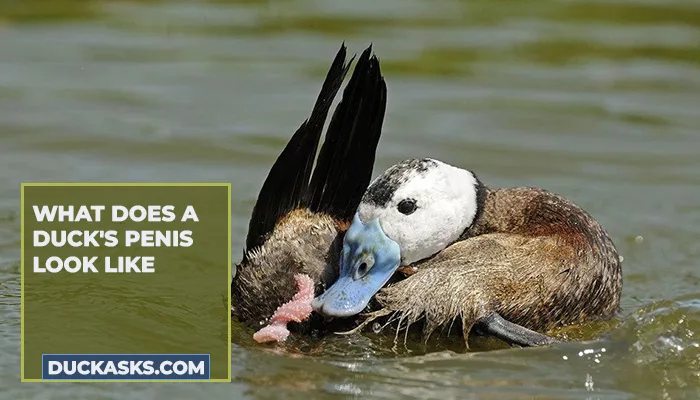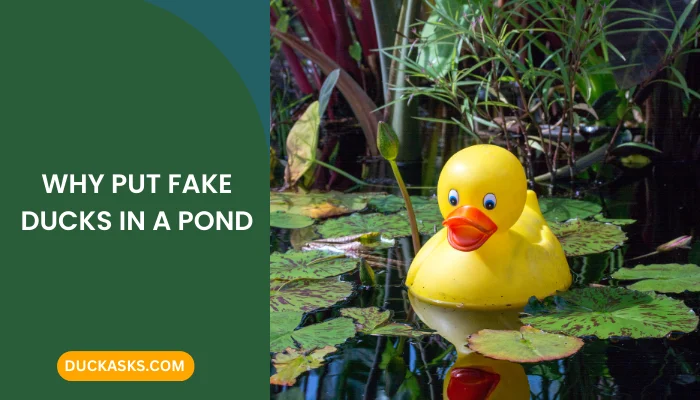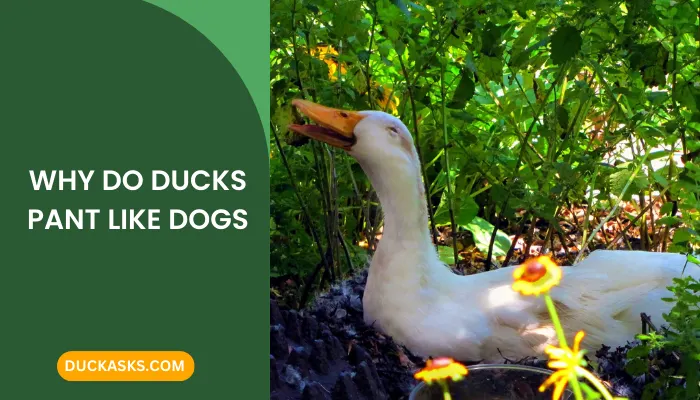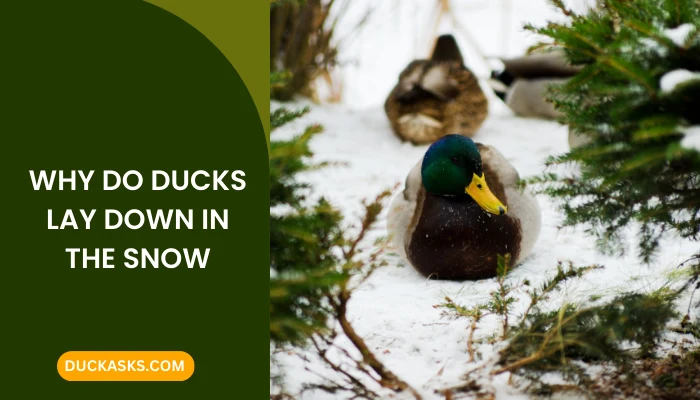Do Ducks Pee? Insights And Interesting Facts!
Indeed, you’ve watched ducks roam around in the park, waddling and searching for their food, flying up to some heights, and swimming effortlessly.
You might’ve encountered these cute little feathered birds pooping out their defecation occasionally. Does that ever make you wonder, ‘Do ducks pee?’
Yes, ducks engage in the urination process and excrete urinary toxins. However, the way isn’t similar to that of a mammal. Yes, they do not pass urinary fluid like mammals, but their bodily toxins, especially ammonia, urea, etc., are readily filtered from their internal system.
The question is how. Fortunately, we’ve researched and found some interesting, relatable facts for you. Want to find out? Binge on!
Related articles about fun facts of ducks!
How Do Ducks and Geese Pee?
Like other birds, ducks and geese have a unique system for excreting waste materials or toxins, including urine.
The urinary system of these domestic fowls consists of a pair of kidneys, each with one ureter. This helps to carry the urine produced by the kidneys or the filtered-out toxin to the cloaca. Finally, the toxins leave the cloaca and eventually the body.
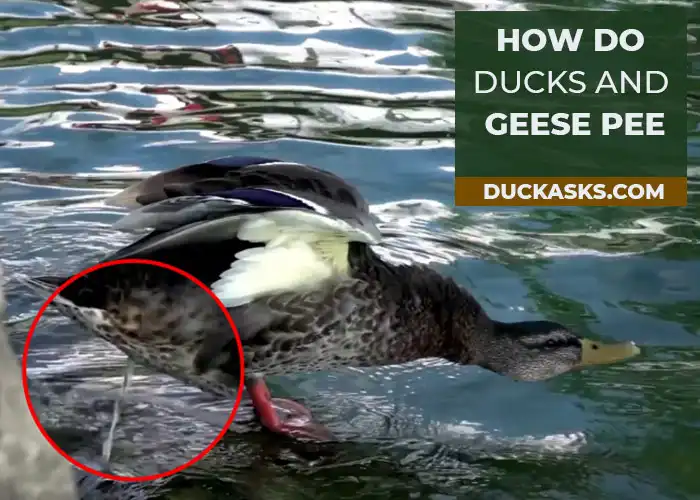
So, the only basic difference with the mammals’ urinary system is that these domestic fowls lack a bladder. Of course, there must be a replacement for that or an alternative solution, the cloaca.
You’ve undoubtedly heard the word, but what is a cloaca? The cloaca is a simple tubular cavity where the functions of the bladder, digestive system, and reproductive organs are carried out. This tubular cavity leads to the anus, more often known as the vent, which excretes the waste out of the bird’s body.
So, the feces generated from the digestive tract, the urine from the kidneys, and even the reproductive cells come out of their body using a common way. And that is the cloaca!
An Overview of the Ducks’ Urinary System
The duck’s urinary system doesn’t work like a mammal’s. And it might be a bit confusing for you to understand. Let’s breakdown the whole process for you-
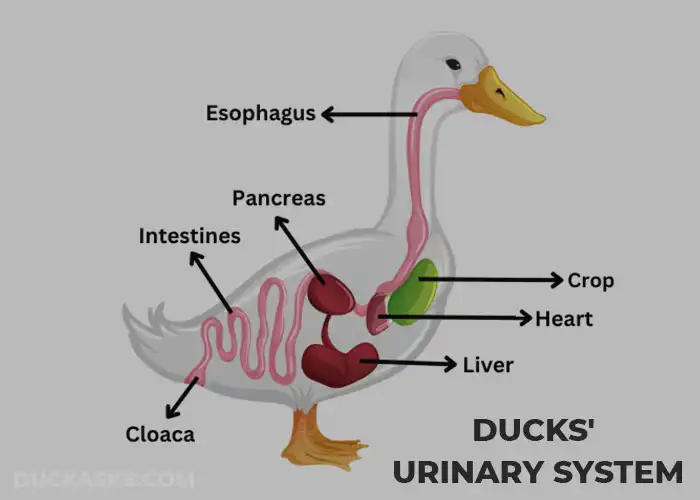
- The pair of kidneys in the feathered birds filter out the bodily toxins and generate ‘urine.’
- This urine leaves the ureter and eventually releases into the cloaca.
- The next step happens in the cloaca, reverse peristalsis, and then it’s sent to the large intestine.
- This step permits excess water re-absorption before the final elimination of urine.
- Birds, including ducks and geese, can use this reabsorbed water for other biological processes. This re-absorption intensifies water conservation.
- On the contrary, due to this re-absorption, a thick paste is formed with high uric acid but lower water content.
The Cloaca Mechanism
You already know what ducks, geese, and similar birds pee out of. That’s their cloaca. Let’s give you further insight into this unique organ of birds.
It is an internal chamber or cavity with an opening at the end. Primarily, sperm or eggs are discharged using the testes or ovaries through this opening.
But apart from acting as a reproductive organ, it also acts as an essential excretion and urination organ. Being an endpoint of three critical biological processes, including the renal, urinal, and reproductive systems, the cloaca is a vital organ for the aves.
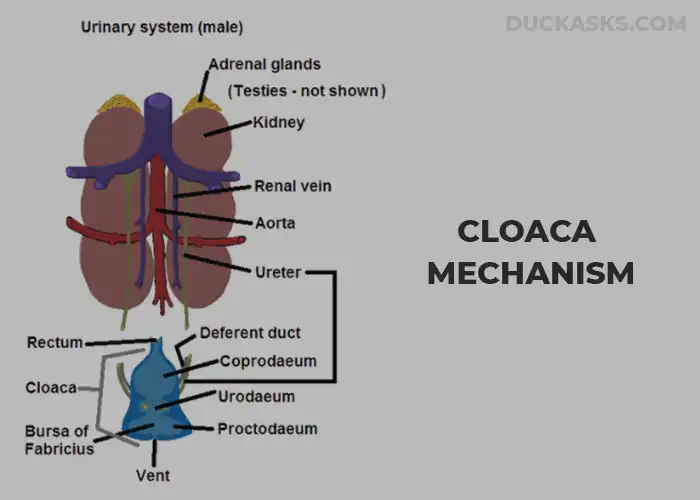
Although the cloaca is considered chiefly a termination point of the three systems, it has extensive roles to play as well. It participates in fluids’ passive absorption and electrolytes’ active absorption.
So, what parts are there in a cloaca? It consists of the proctodeum, urodeum, and coprodeum. As for the reproductive and excretory systems, they directly run to the urodeum. Besides, several different muscles and skin layers function as dividers of the chamber as per the need.
After a bird consumes food, both nitrogenous and excretory wastes are produced in its body. These are stored in different chambers of the tubular cavity.
Usually, the solid waste is held in the innermost chamber, but with nutrient absorption, the solid and fluid waste are combined to make paste-like waste.
What Do Ducks Pee Out?
Ducks also don’t have a urethra to expel urine or toxins from their body!
So, with no bladder and as a means of prohibiting excess water release, their urination occurs the same way as other feathered-flying aves.
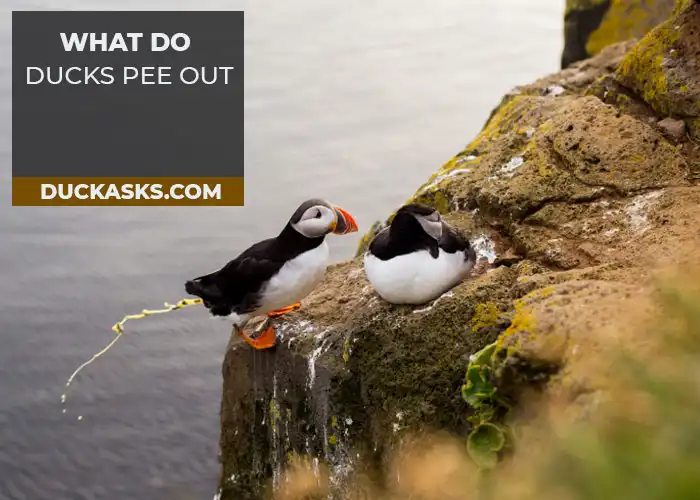
Their urinary system turns the urinary toxins into a semi-solid paste-like substance that can easily pass out with their feces.
Did you notice the whitish paste and the feces that your feathered birds excrete? Well, that’s their urine, if you haven’t guessed already!
Where Do Male Ducks Pee from?
Both male and female ducks pee from the cloaca. The nitrogenous waste is passed directly to the cloaca from the kidney. You might wonder, with no storage and frequent urination, how do birds store water? Well, here’s the answer.
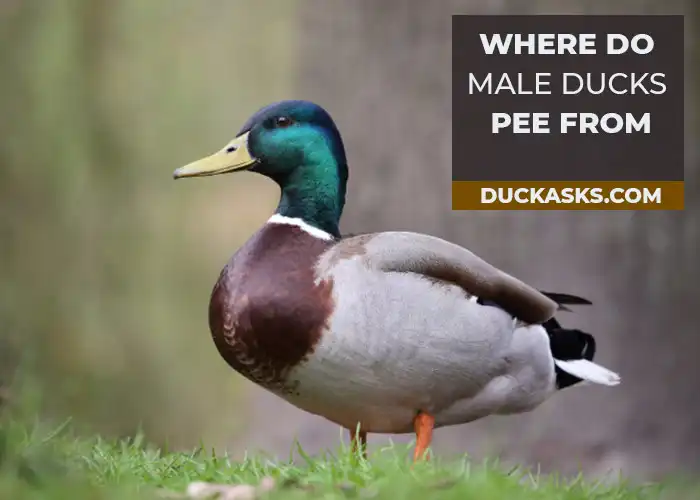
The liquid nitrogenous waste is almost 98% reabsorbed by the cloaca and sent back to the body. Of course, not the toxins, but the water content is reabsorbed. It is how an effective water conservation process for ducks without the presence of a bladder.
So, is there a difference between a male and female duck cloaca? In the case of a male drake, the cloaca is usually pointed upwards or a bit forward, with a crease within it. On the other hand, the cloaca is pointed backward for female ducks with no visible creases.
Do Ducks Have a Single Hole for Excretion and Urination?
Yes, ducks have a single hole that functions as a termination point for excretion and urination.
If you’ve noticed duck poop, it has a white layer. However, duck poop isn’t white; in reality, that’s the nitrogenous waste you’re looking at.
Unlike mammals, birds, including ducks, do not have different exits for excreting feces and urine release. They are simultaneously expelled from the body by means of the cloaca, the vent.
As for mammals, nitrogenous toxins are generally expelled from the body in the form of urea, whereas for ducks, the waste is converted to guanine or uric acid. An accumulated uric acid content forms a white sticky paste, which you can observe as a duck poop layer.
How Often Do Ducks Pee?
There isn’t an exact answer in terms of the time intervals for this urination in ducks. It depends on several factors, including duck age, health, and species.
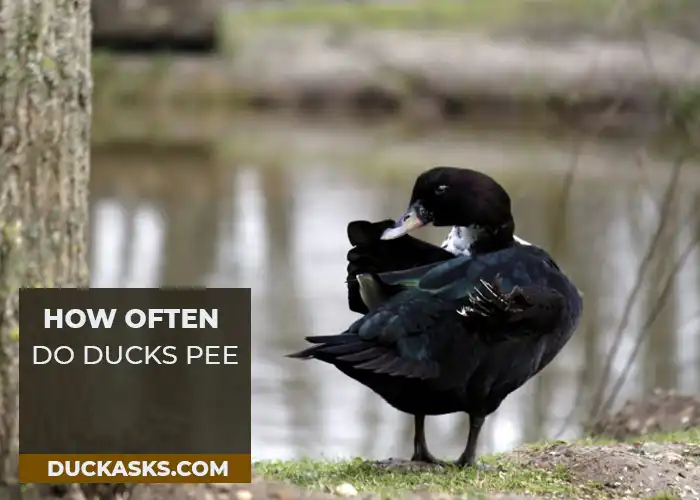
However, since ducks poop and pee simultaneously, we can assume their urination frequency from how many times they defecate on average. Broadly, a duck can excrete from 80-96 times daily, almost every 15 minutes.
Now, it isn’t necessary that every time they excrete, nitrogenous waste is released with them. But in most instances, that’s what happens.
What Urinary Issues Prevail in Ducks?
Ducks may not pee like mammals and handle the whole urination process differently, but that doesn’t mean they do not need much water to survive.
An adult duck needs to drink a minimum of a liter of water daily. If not taken proper amounts of water, your feathered bird can suffer from dehydration which leads to severe issues and may even shut down the duck’s body.
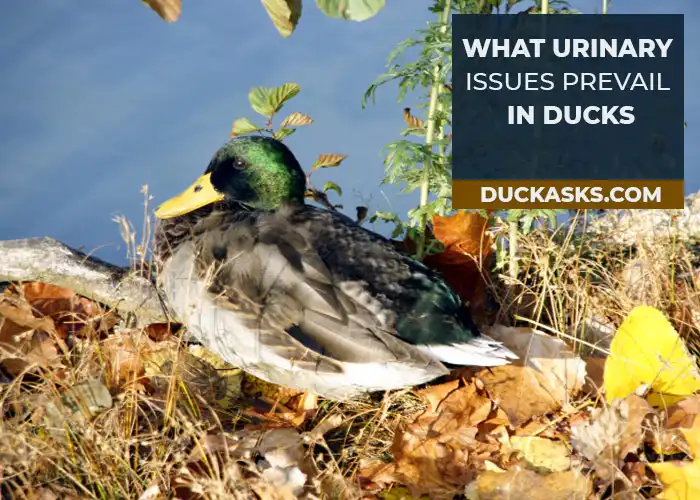
Some urinary system-related issues may be the result of dehydration, mentioned blow-
Excessive Uric Acid
If your ducks accumulate excess amounts of uric acid in their system, they will show severe sickness symptoms. For instance, their legs may be swollen, inability to walk properly, or extreme fatigue results from too much uric acid.
Gout
When your feathered bird has excessive urate crystals in their body, the resulting disease is called gout. If your duck suffers from gout, it will show clear signs of fatigue and purple skin beneath its feathers. If the condition persists, it may even prove fatal to their lives.
Parting Words
The urination process is undoubtedly different in ducks than in mammals, but ducks do pee. And they have quite an exciting system to handle urination.
If you have a barn full of ducks, here’s some advice: make sure they have access to plenty of water so they do not suffer from dehydration. So, next time you see a white layer on your duck’s stools, know their urinary system is doing fine!
If you’re looking for more details about ducks or domestic birds, don’t forget to stay connected with us through Facebook, Twitter, & Pinterest. Good luck barning!
Article References:
- https://a-z-animals.com/blog/duck-poop-everything-youve-ever-wanted-to-know/
- https://www.britannica.com/story/why-is-bird-poop-white
- https://www.thespruce.com/glossary-definition-cloaca-385197
Image Credit:
- Canva.com/photos

